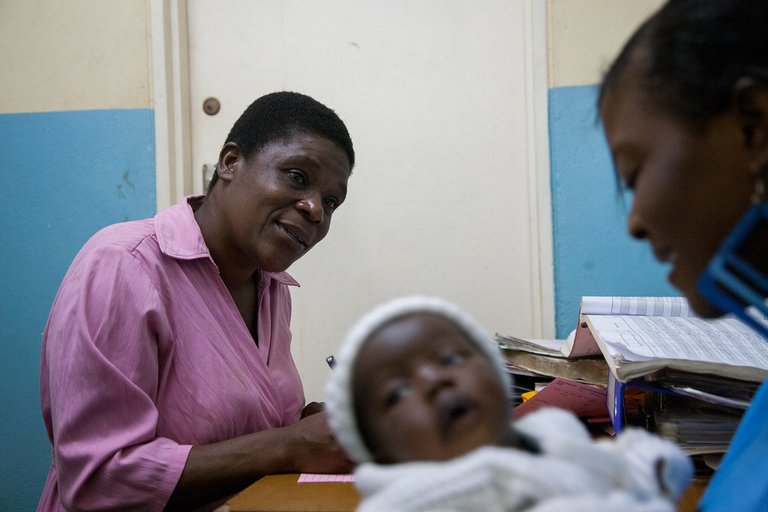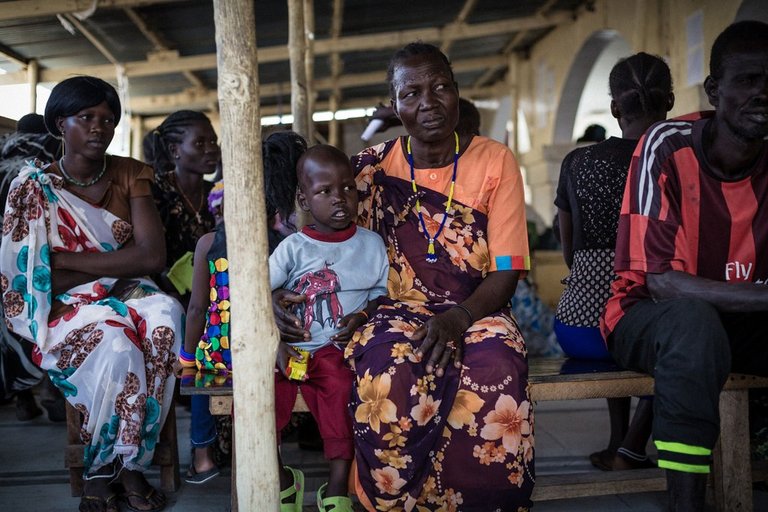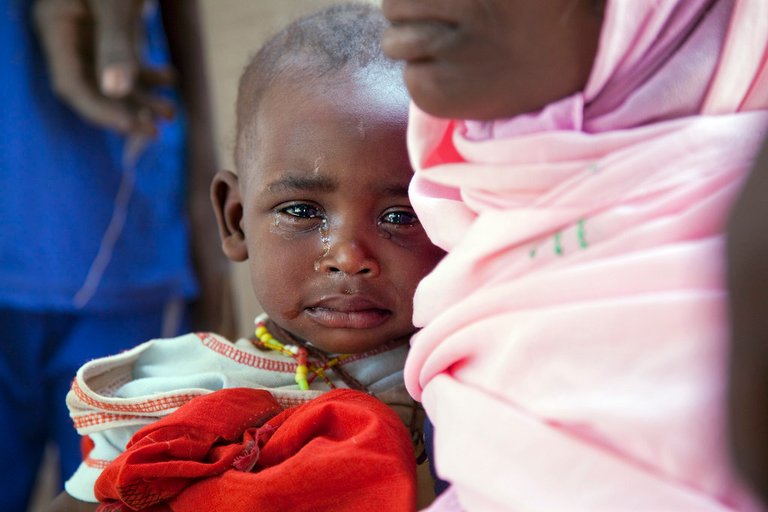You can only imagine how shocked I was when I read about the possibility of urinary tract infection in children. We are aware of the possibility of the infection in adults, but a child is a different ball game entirely.
It was even more surprising to learn that the condition is a fairly common one among them. Bacteria enter into the urethra and are often flushed out during urination, but sometimes the bacteria are not completely expelled out of the urethra and may begin to grow within the urinary tract, creating an infection.
staticflickr.com

The urinary tract encompasses other parts of the body that are involved in urine production: the two kidneys, which play the role of filtering the blood and extra water to produce urine; two ureters, or tubes, that move urine to the bladder from the kidney; the bladder, which stores urine until it is removed from the body; and a urethra, or tube, which empties urine from the bladder to the outer part of the body.
A child can develop a UTI when bacteria enter into the urinary tract and move up to the urethra and into the body. Most times, the two types of UTIs that affect children are kidney and bladder infections. When the bladder is affected, it is called “cystitis,” but when it travels from the bladder to the kidneys, it is called “pyelonephritis.
While both cases can easily be treated with antibiotics, a case of kidney infection could lead to a more serious health issue if not treated appropriately. Bacteria are the most common causes of UTIs, which could enter into the urinary tract from the skin around the vagina or anus.
flickr.com

The most common cause of the UTI is E. coli, originating from the intestines, and when this bacteria spreads from the anus to the urethra is when UTI happens.
UTI affects the female gender more, especially at the start of toilet training; this is so because their urethras are shorter and closer to the anus, making it easier for bacteria to enter into the urethra. Boys who are not circumcised under the age of one also have a higher possible chance of developing a UTI.
Usually, it is not like the urethra to harbor bacteria, but there are circumstances that make it easier for bacteria to enter or remain in the urinary tract of a child.
Here are some of the triggering factors:
• An abnormal function of the urinary tract.
• The act of wiping from the back to the front after a bowel movement.
• Using bubble baths for girls.
• Wearing tight-fitted clothes for girls.
• Poor toilet hygiene habits.
• Delayed urination or infrequent urination.
Most children and infants who come down with UTIs usually have various structural abnormalities in their urinary system, making them susceptible to urinary infection. These abnormalities include vesicoureteral reflux (VUR).
flickr.com

You can start to suspect UTI in a child when there is an experienced burning or a stinging sensation during urination, when the child uses the bathroom at night a lot, when the child wets the bed even after being potty trained, when there is stomach pain around the bladder, when there is urine that smells bad, with a cloudy look, or one with blood.
In older children and adolescents, injury, diabetes, and sexual intercourse increase the chances of UTI development. UTIs in newborns have no other symptoms than fever, and there are times when they do not eat well, therefore affecting their growth too. In extreme cases of lack of treatment, the child may further develop sepsis.
Children and infants below the age of 2 usually have symptoms that have a similar appearance to an adult with kidney or bladder disease. Children who now have bladder infections often experience pain or burning during urination and a constant urge to urinate more with pain in the bladder region, therefore creating a foul smell too.
Children who have kidney infections have pain on the side or back of the affected kidney; accompanying the pain are chills, high fever, and a general feeling of illness. A child with urinary tract abnormalities can be identified with a mass in the abdomen, an abnormal opening to the urethra, enlarged kidneys, and a possible deformity in the lower spine.
UTIs can be diagnosed in children through urine tests, imaging of the urinary tract, and sometimes blood tests. Antibiotics are usually the basic treatment option for UTIs in children; they can be administered either through the mouth, muscle, or vein depending on how severe the case is or how the child feels. Treatment often lasts for about 7-10 days.
Some other children require surgery to correct the problem if there is a structural abnormality. Others may have to consistently take antibiotics daily to prevent infection, known as prophylaxis. Children who have proper treatment would most likely never develop kidney failure unless there are urinary tract abnormalities that cannot be repaired.
Preventing UTIs may be difficult, especially with some cases that cannot be naturally controlled, but some basic hygiene may help. Start by teaching your girls how to wipe themselves from the front to the back after a bowel movement and after urinating; this will help to limit the chances of bacteria getting into the urethral opening.
Parents are also advised to avoid bubble baths frequently, as this may irritate the skin around the urethral opening and will help lessen the risk of UTI in both boys and girls. Male circumcision also lowers the risk of UTI during infancy.
For Further Studies
https://www.urologyhealth.org/urology-a-z/u/urinary-tract-infections-in-children
https://kidshealth.org/en/parents/urinary.html
https://emedicine.medscape.com/article/969643-overview?form=fpf
https://www.healthline.com/health/urinary-tract-infection-children

Hi, I am Tobi, a writer, speaker, relationship blogger, and lover of good music. I love making friends and learning from people. If you want to hear me speak about relationships and general life issues, you can find my YouTube channel where you can watch any episode for free, please do not forget to subscribe, friends. I sincerely appreciate every love I get from here, Kindly do well to keep them coming.
Your post effectively explains UTIs in children, covering causes, symptoms, and prevention. Practical tips like proper hygiene and early treatment emphasize proactive care. Well done!
Thank you, have an amazing weekend.
Uwc
Thanks for your contribution to the STEMsocial community. Feel free to join us on discord to get to know the rest of us!
Please consider delegating to the @stemsocial account (85% of the curation rewards are returned).
Thanks for including @stemsocial as a beneficiary, which gives you stronger support.